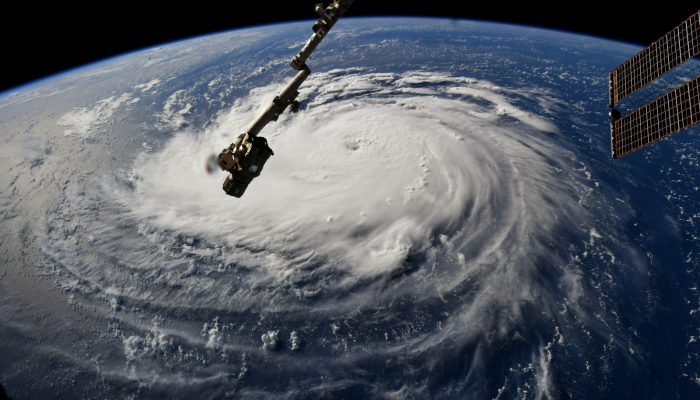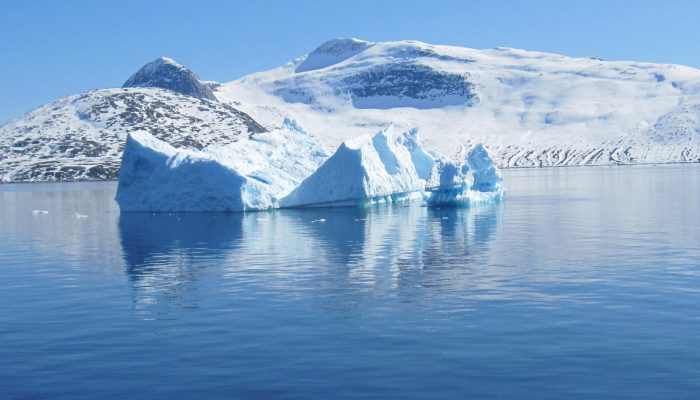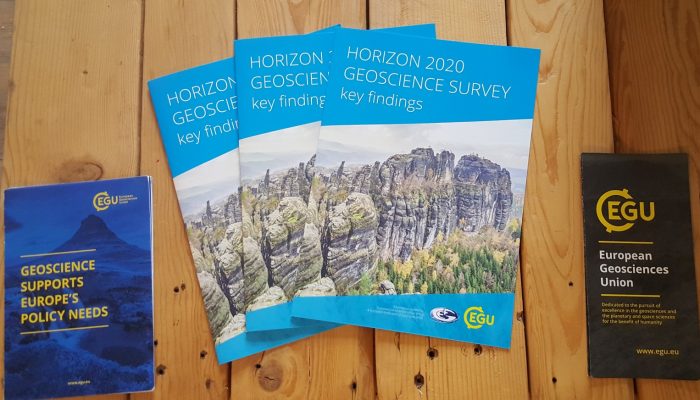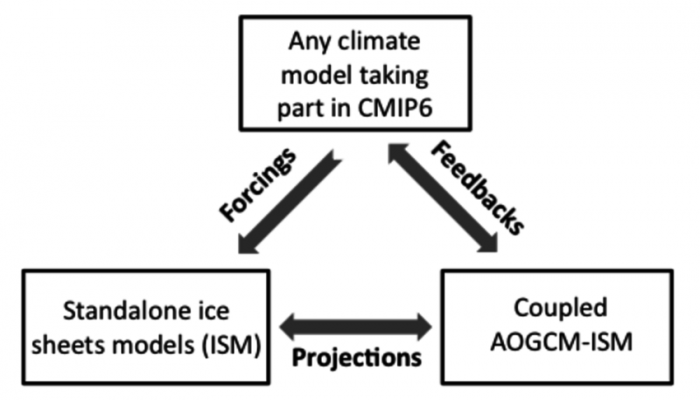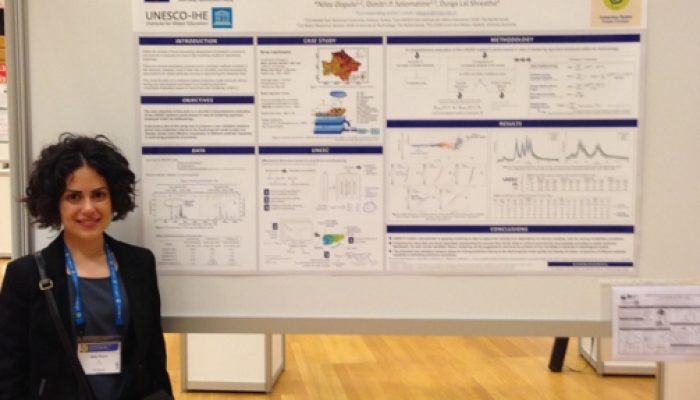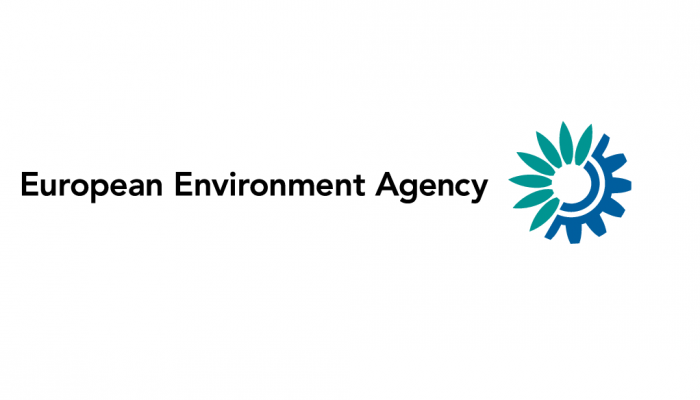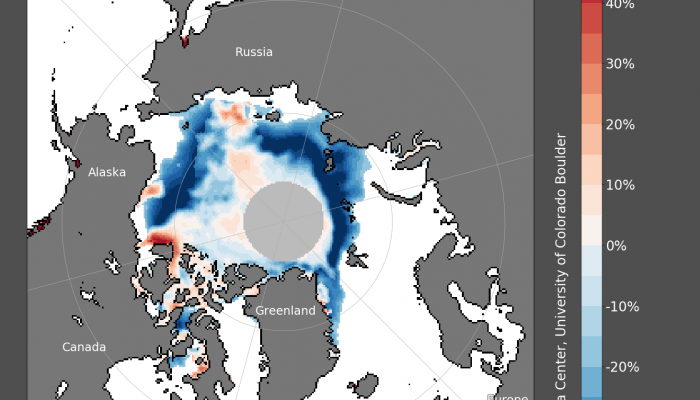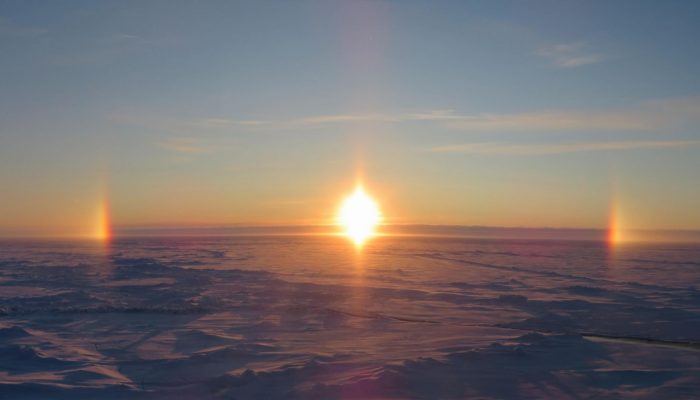Drawing inspiration from popular stories on our social media channels, major geoscience headlines, as well as unique and quirky research, this monthly column aims to bring you the latest Earth and planetary science news from around the web. Major stories This month has been a whirlwind of Earth and space science news; the majority focusing on natural hazards. Powerful cyclones, earthquakes, and ts ...[Read More]
If you didn't find what you was looking for try searching again.
Cryospheric Sciences
Image of the Week – Greenland’s fjords: critical zones for mixing
One of the most challenging research questions to address in the Arctic is how freshwater discharge from Greenland’s largest glaciers affects the biogeochemistry of the ocean. Just getting close to the calving fronts of these large marine-terminating glaciers is difficult. Fjords, hundreds of kilometers long and full of icebergs which shift with the wind and roll as they melt, make the commute a l ...[Read More]
Stratigraphy, Sedimentology and Palaeontology
Glacial grooves from the Laurentide Ice Sheet (Québec, Canada)
These impressive glacial grooves observed along the North Shore of the St. Lawrence Estuary (Québec, Canada) were carved into the crystalline bedrock by the Laurentide Ice Sheet. The grooves mark the basement of a complex sedimentary system known as the Tadoussac Delta, lying at the mouth of the Saguenay Fjord and intimately tied to the Late Pleistocene-Early Holocene deglaciation of the area. The ...[Read More]
GeoLog
GeoPolicy: Horizon Geoscience!
For the last few months the EGU has been working towards both hosting a dinner debate in Brussels, Belgium, and publishing the Horizon 2020 Geoscience Survey Report which was based on a survey conducted within the geoscience community earlier this year. Both of these endeavours were undertaken together with the European Federation of Geologists (EFG) and had similar aims: to enhance collaboration ...[Read More]
Cryospheric Sciences
Image of the Week – Oh Sheet!
The Antarctic and Greenland ice sheets are major players in future sea level rise. Still, there is a lot about these ice sheets we do not understand. Under the umbrella of the World Climate Research Programme, the international scientific community is coming together to improve ice sheet modelling efforts to better grasp the implications of climate change for ice sheet evolution, and consequently, ...[Read More]
Seismology
What’s Shaking? – Facts and figures of latest earthquakes
Haven’t you heard about the recent major earthquakes which stroke the globe? No worries, the ECS-reps will post a quarterly report with basic information about the latest earthquakes you can’t miss. Let’s start with June, July and August 2018. Between the 1st June and the 31st August, 425 earthquakes with magnitude Mw above 5.0 were recorded by the international network broadband se ...[Read More]
GeoLog
GeoTalk: Nilay Dogulu, Early Career Scientist Representative
In addition to the usual GeoTalk interviews, where we highlight the work and achievements of early career researchers, this month we’ll also introduce one of the Division early career scientist representatives (ECS). They are responsible for ensuring that the voice of EGU ECS membership is heard. From organising short courses during the General Assembly, through to running and attending regular EC ...[Read More]
GeoLog
GeoPolicy: What does working at the European Environment Agency look like? An interview with Petra Fagerholm
This blog post features an interview with Petra Fagerholm who is currently leading the team on public relations and outreach in the communications department of the European Environment Agency (EEA). Petra gave a presentation about the EEA during the Science for Policy short course at the 2018 EGU General Assembly. In this interview, Petra describes her career path, what it is like to work at the ...[Read More]
Cryospheric Sciences
Image of the Week – The 2018 Arctic summer sea ice season (a.k.a. how bad was it this year?)
With the equinox this Sunday, it is officially the end of summer in the Northern hemisphere and in particular the end of the melt season in the Arctic. These last years, it has typically been the time to write bad news about record low sea ice and the continuation of the dramatic decreasing trend (see this post on this blog). So, how bad has the 2018 melt season been for the Arctic? Yes, the 201 ...[Read More]
Atmospheric Sciences
The puzzle of high Arctic aerosols
Current Position: 86°24’ N, 13°29’E (17th September 2018) The Arctic Ocean 2018 Expedition drifted for 33 days in the high Arctic and is now heading back south to Tromsø, Norway. With continuous aerosol observations, we hope to be able to add new pieces to the high Arctic aerosol puzzle to create a more complete picture that can help us to improve our understanding of the surface energy budget in ...[Read More]

